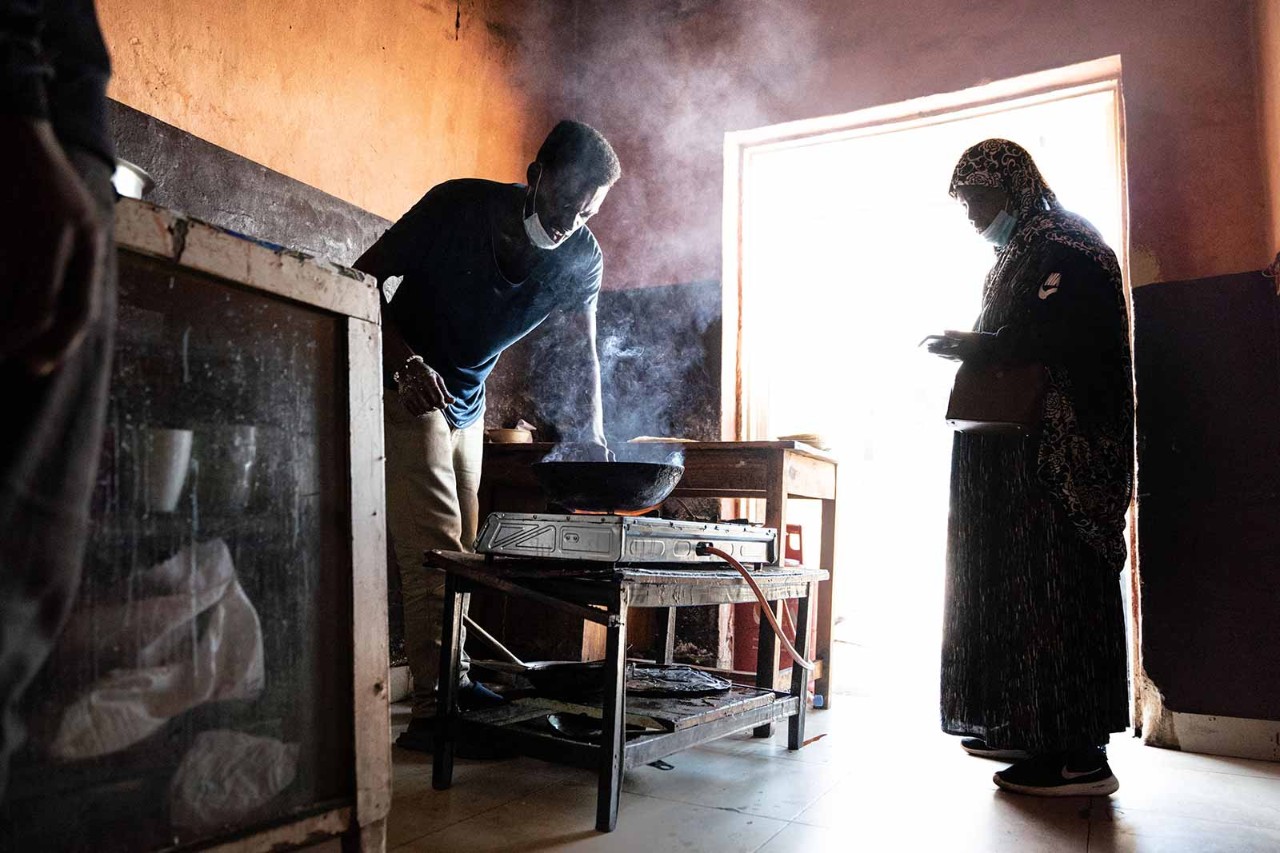
Transformation is a way of life for Stevens Mwanje FCCA. Since 2017, as CFO of Uganda’s National Social Security Fund (NSSF), a contributory national savings scheme for private-sector employees, he has not only boosted the fund’s financial performance, but has also pushed through radical changes to bring the finance department into the modern age.
Not content with that, his vision extends to the future composition of the profession itself, the way accounting work is performed and even how work should feel.
Firm foundations
Mwanje’s own professional roots were in the banking sector, at Allied Bank International, where he worked first in internal controls. After qualifying with ACCA, he made the leap to chief accountant, then bank treasurer. From Allied, he moved to the Bank of Africa Kampala, where he was head of the commercial division until 2010.
‘Accounting in this department seemed not to have moved on for over 10 years’
CV
2017
CFO, National Social Security Fund, Kampala, Uganda
2010
Head of sales and operations, National Social Security Fund
2006
Head of commercial division, Bank of Africa Kampala, Uganda
2003
Bank treasurer, Allied Bank International (Uganda), Kampala
1998
Chief accountant and head of administration, Allied Bank International
1995
Head of internal controls, Allied Bank International
‘Becoming an ACCA accountant definitely helped me to grow my career both horizontally and vertically,’ he says of his time at the banks. ‘You have to understand basic finance but the ACCA curriculum is also dynamic,’ he explains. ‘It provides you with constant upskilling that takes you well beyond bean-counting.’
Mwanje has also found both the basics and the dynamism of his ACCA Qualification to be inspirational during his time at NSSF. He joined in 2010 as head of sales and operations, where he improved core business processes and restructured the department. Then, in 2017, the post of CFO opened up and Mwanje was tapped to step in.
Scope for improvement
‘The first thing that struck me was that accounting in the department seemed not to have moved on for over 10 years – it was very basic,’ he says. ‘I could hardly believe it.’ Mwanje chose not to let this initial disappointment faze him. He took the first few weeks in his new role just to read, picking out business-related articles to understand where his journey to modernise the department’s performance might start.
The ensuing transformation wasn’t only about improving the numbers. Mwanje was determined to make the work more interesting for his team. ‘When you work on the business side of things, different events happen every day, which makes it interesting,’ he says. ‘But back then the finance function was a very traditional set-up – day after day of payables, receivables, reconciliations. I honestly don’t know how the team did that every day without losing motivation.’
He resolved to turn the department from a collection of bean-counters to a crack team of business advisers, starting with the more than 60% who were unqualified.
Key to the change is the type of advice his department gives. ‘It’s no use just talking to management about old numbers – giving them a rear-view of what’s happened. We want to de-emphasise retrospective reporting and be more prospective – talking to management about what might happen in the future and what implications that may have for the organisation,’ he says.
Automation to underpin advisory
To free up the finance team for a role as value-adding trusted advisers, Mwanje set out to automate where he could – by 2025 he aims to have automated 85% of mundane accounting tasks. ‘I desperately wanted my team to have the opportunity to use their brains, to think, to provide insights to the business, and live in the world of Big Data,’ he says.
And he has succeeded. ‘If I look at the team now, it is completely different,’ he explains, noting that around 80% are qualified, the majority of them with ACCA.
And it isn’t just the capabilities of his team that have improved. ‘They think and act differently,’ Mwanje says, describing how they regularly challenge one another – and him – and would now be comfortable advising the board. ‘The discourse is totally different and I like that,’ he adds.
‘We want to de-emphasise retrospective reporting and be more prospective’

Re-skilling and upskilling his team has led to other benefits, too. His next target was improving the organisation’s financial reporting.
‘It was another area that was very traditional,’ he says. ‘Reporting is the opportunity to explain what NSSF is all about – the role that we play and the good that we do.’
With this in mind, he despatched two staff members to South Africa to learn how to apply integrated reporting. ‘They came back and taught the rest of us,’ he says, and lists the string of awards NSSF has since won for its insightful reporting and stellar corporate governance.
Happy people
The fact-finding trip to South Africa is a classic example of how Mwanje likes to work. Everyone has a role to play, everyone has something to learn and dynamism is rewarded. But he is also a firm believer in holistic working – that it isn’t all about education and performance, but about how you feel about your job.
‘The work-life balance is crucial,’ he says, ‘As a leader, I need to think about how I can keep my team from burning out, keep them focused, how I can make them happy – if I can do that they’ll perform better and stay with us longer.’
With this in mind, Mwanje has instituted a ‘tag mate’ system where employees are responsible for each other’s wellbeing. ‘We go to each other’s houses for dinner, go for walks together, get to know each other’s families,’ he says. The goal is to encourage conversation, exercise and healthy eating – a system that has paid off handsomely, especially during the Covid-19 pandemic.
‘It was a very stressful time,’ says Mwanje, ‘but the wellness programme helped because we knew one another well already.’
Community spirit
Mwanje also speaks with pride about two financial education programmes the team is spearheading in the local community.
‘Hunger, war, disease – these are often our priorities, but it doesn’t mean we lack the capacity to address climate change’
NSSF in numbers
USh15.6 trillion
Total assets
86%
Customer satisfaction
94%
Staff satisfaction
26%
Total income growth (FY2020-21)
USh642bn
Benefits paid out (FY2020-21)
Source: NSSF Integrated Report 2021
The first, with Mastercard, provides seed funding and advice to Ugandan SMEs and startups. ‘These smaller companies often don’t know how to keep their business finances separate from their personal finances,’ says Mwanje. ‘The idea is to give them advice on how to grow responsibly.’
The second programme is around simple financial literacy. ‘We want to teach people how to budget and prioritise their money,’ he explains.
Mwanje wants to change how the profession looks, too. First, he feels strongly about sustainability; African nations suffer some of the worst impacts of climate change and often have the fewest resources to combat it.
‘We have so many other things that are immediate problems,’ he says. ‘Hunger, war, disease, these are often our priorities – but it doesn’t mean we lack the capacity to address climate change.’
Here, he believes that the younger cohort of accountants can help drive this – using an ACCA syllabus that ‘has good direction’ in this regard.
Making the profession more inclusive is another passion. ‘There are a lot of women in accounting here,’ he says, ‘but their progression does not match that of their male counterparts. We have to make a direct effort to advance them.’
As an award-winning CFO, Mwanje is well-placed to bring about such change – and his own department is testament to how accounting can become a more dynamic, sustainable, inclusive and community-focused profession.
‘Accountancy is a very fast-growing occupation in Uganda,’ he says, ‘but we need to ensure it develops in the right way – and for that we need supportive leaders.’ Clearly his aim is to be one of them.


